#I shall be back with some isometric views.
Explore tagged Tumblr posts
Text
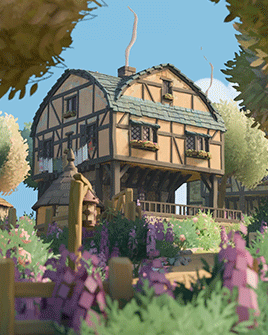
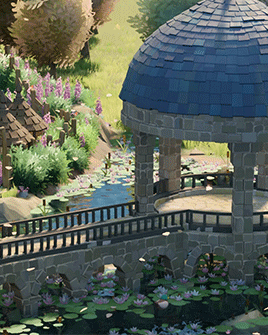
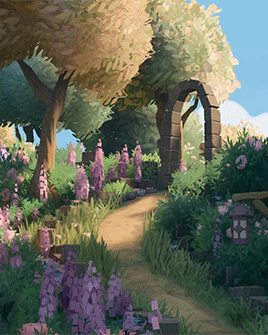
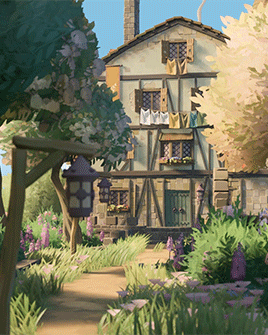
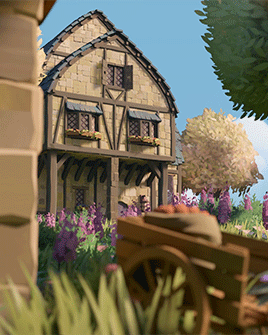

TINY GLADE ; small village 01
#tiny glade#dailygaming#gamingedit#vgedit#gamingscenery#gamingnetwork#miyku#userkarlo#.c#.tiny glade#ggguuuhhhh#it's done wahoo!!!!#now how do i show my entire build...#I shall be back with some isometric views.
915 notes
·
View notes
Text
Please Don’t Sleep on Hades
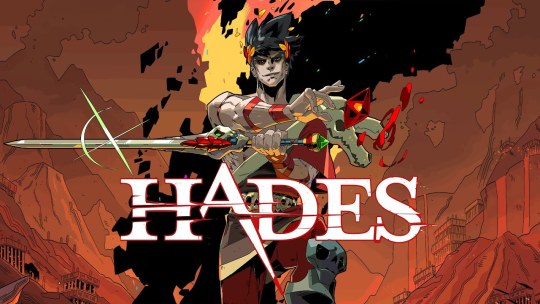
2020’s…been a real year, huh? At a time when in-person gatherings aren’t much of a thing and people have to stay in, video games are suddenly a pretty attractive option. That said, few games have really grabbed me this year; in a roundabout way, 2020’s been a year of reruns, as I go through a lot of games I’ve already played or games that are just yesterday’s news (but new to me!). However, in the nick of time, the folks at Supergiant Games delivered unto us their latest title, Hades. While they’ve been working on this game for years, with it hitting Early Access on Steam back in 2018, the full version of Hades finally hit Steam, the Epic Game Store and made the leap to consoles with the Switch, which is where I picked it up. It has been a WHILE since I’ve had a game grab me so strongly so early on, and I’ve been hearing this game’s praises for years now already, so allow me to happily state why I think Hades is worthy of the hype and is a fantastic game I’d easily recommend!
DADDY ISSUES
OK, so first things first…you don’t actually play as Hades in this game, but rather his son Zagreus. Ol’ Zag has had it with his father, and tries to literally fight his way out of hell to reach the surface, and no matter what his old man puts in his way, Zagreus (and the player) will meet the challenge. And probably die, but hey, that’s OK! In the underworld, death is more of an inconvenience than anything else, so after taking a moment to dust himself off, Zagreus will head out for another attempt. For as long as it takes.
Hades is a rogue-like, meaning it’s a game based around randomization and adaptation. On any given “run” of the game, the level layouts, enemies present and the variety of power-ups Zagreus can find will be left to chance, with the player challenged to amass the best build they can to eventually break out of hell and reach the human world and if you die…start from scratch. That said, Hades is among the ever-growing sub-genre of rogue-lites, in that there IS some permanent progression, which takes a bit of a sting out of dying, but more on that later. Now, most games of this type aren’t really big on story. They have a premise that’s little more than an excuse to play. Splunkey wants you to explore a cave, The Binding of Isaac sees you escaping a basement and in Enter the Gungeon you uh…e-enter the gun—you get the point! But what separates Hades from most rogue-likes/lites is that there actually IS a very interesting story that unfolds as you play.
There’s more to Zag’s desire to get to the surface than just getting away from his father, though their strained relationship certainly doesn’t help matters, and over the course of your many, MANY escape attempts, players learn of the rather screwed-up nature of Zagreus’ family of deities, though any mythology nut could tell you to expect that. Hades has an incredibly charismatic cast, superb voice acting across the board, and some real sharp writing that really got me wanting to meet anyone and everyone and learn more about this world. You’re likely to run into Hypnos first, who always has a “tip” ready for you when you meet your end to a given enemy or hazard, or the fabled hero Achilles, who acts as a mentor to Zagreus. There’s Dusa, the adorably frazzled flying gorgon head who acts as the House of Hades’ maid, and of course…Megaera, of the Furies.
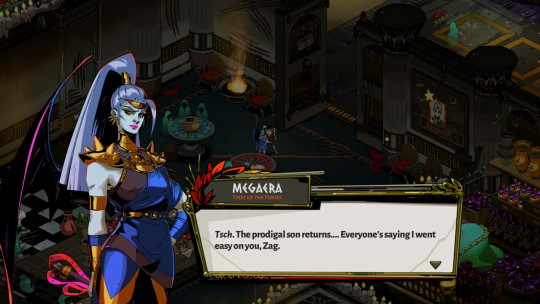
She serves as the first proper boss in the game, and will be a pretty sizable challenge for most players, but as you eventually overcome her again and again, she and Zagreus end up attempting to reconnect with each other, and her recurring fights become an excuse to flirt and test each other. I may as well say too that it’s easy to fall in love with the characters in this game because…I-I mean, just look at them! This game is a bisexual’s paradise, that’s all I’ll say.
A bit of a fun fact, but Zagreus’ voice actor, Darren Korb, is also a composer at Supergiant, so he’s a man of many talents, since Hades has a killer score. From the laid-back tunes at the House of Hades where you can unwind and recharge after a botched run, to the pulse-pounding boss theme, there’s some GREAT music on display here. And that’s before you meet Orpheus and Eurydice, two characters with amazing singing voices that, if you play your cards right, might start singing together. The game’s visuals, meanwhile, aren’t a slouch either. While the level layouts are randomized, everything manages to look well-crafted, each region of the underworld having their own distinct look and feel. The fiery pits of Asphodel end up juxtaposing well with the paradise that is Elysium. Now, character models are generally less-detailed since the camera stays zoomed out to give players a good view of the action, but the portraits for the various characters more than make up for it with their distinct, detailed designs. A-And I’m not just saying that because everyone’s hot! Now, admittedly you might take a look at Zag and think he’s nothing but an edgelord and the game itself might be taking itself too seriously, but in reality, Hades strikes a pretty good balance, and definitely carries a sense of humor. Characters love to snark at each other, the various Shades chilling in the House of Hades’ lounge have some funny conversations you can listen in on and all told, the game only gets serious when appropriate. Really, I have no real complaints with the game on a presentation level; it’s all aces so far, and thankfully the game-y part follows suit!
LIVE.DIE. REPEAT.
Hades is best described as a dungeon-crawler. You have an isometric view as you move about, avoiding hazards and fighting off enemies as you climb each chamber on your way to the surface. Defeat every enemy in a chamber and get a reward. Sounds simple enough until you factor in all of the various permutations of events; Hades aims to make sure no two runs are alike, with different enemies, power-ups and challenges awaiting you. All of this is doled out slowly, as with each subsequent playthrough you begin to have more of the game unraveled. First and foremost, Zagreus can gain various Boons from the other Olympian Gods, who are sympathetic to his plight and lend him some power if he makes contact with them. Each God has their own twist on the abilities they grant Zagreus. They can all increase his stats in some way, or affect either his dash ability or his Cast, a projectile attack. For Zeus, naturally, all of Zagreus’ moves will gain an electric effect, whereas Artemis focuses more on upping Zag’s critical hit chance. Dionysus, the God of Wine, grants you the “hangover” status effect, allowing your attacks to uh…make enemies drunk? Sure! You’ll be given a random selection of three Boons to pick from, of varying rarities. Over the course of a run, you might try to nab as many Boons from the same God as possible, or vary it up and see which abilities synchronize together. At times, you might even be granted a Duo Boon, where two Gods decide to combine their power for a special ability that plays to both of their strengths. Still, at other times, you might be forced into a Trial of the Gods, where you must choose one God’s Boon over the other, with the snubbed God lashing out afterwards. Hey, just because they’re Gods, doesn’t mean they’re nice. Of course, you’ve also got a variety of health and weapon upgrades too. In fact, let’s gush about the weapons for a second, shall we?
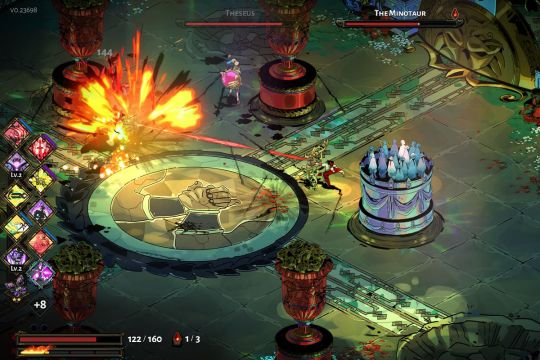
At the time of writing, Hades has six weapons to play with. You start with a sword, which is the all-rounder of the set, but as you gain keys to unlock more weapons, you can start to really experiment. The bow and rail cannon serve as ranged options with different approaches, while the spear is the melee weapon with the best range at the cost of pure power. The shield grants you absolute defense at the cost of range, while the gauntlets let you unleash your fisticuffs on underworld scum, though leave you with limited ranged attacks. Each weapon has specific Boons and weapon upgrades you can find as well, some of which can radically alter how a weapon works. The rail cannon, for example, fires a lot faster than the bow, but this is balanced by needing to manually reload…unless you get a weapon upgrade that gives you unlimited ammo with the only catch being that you can only do burst fire. Adding to this, players eventually unlock hidden Aspects of weapons, morphing them into different forms which can also influence their moveset. Change the shield to the Aspect of Zeus, and when you throw your shield Captain America style, it stays out and continually spins, dealing tons of damage over time and effectively forcing enemies to get sliced to bits if they want to get near you. I didn’t expect this game to have half this many weapons or to have them balanced so well. Really, just like anything else, weapons are another tool you can poke and prod and experiment with until you get a truly killer collection of Boons and upgrades that let you just demolish anything in your way. It’s very satisfying when you finally clear a run with a great build…though depending on the RNG, you WILL get some crummy builds, but that’s the nature of the rogue-like!
It’s likely that a bad build (or really, just getting hit with a new boss or enemy you aren’t prepared for) will lead to a death, but as already established, death isn’t really that much of an inconvenience in the underworld. Zagreus just spawns back at home and is free to immediately try to escape again, but this brief reprieve lets you chat up whoever happens to be around, give them gifts, advance some side-quests, pet your dog Cerberus and practice with weapons and such before you’re ready to go at it again. It’s after a run that you also get to spend a lot of the spoils of your escape attempts. While you lose Boons and weapon upgrades and the like upon death, there’s a LOT of various items you keep with you that have plenty of uses. Darkness shards are used for permanent skills that can be applied to Zagreus, like Death’s Defiance, which grants Zagreus another life upon dying, which can eventually be upgraded to give him THREE extra lives, just as an example. Precious gems can be used to fund a variety of cosmetic changes to the House of Hades. Just because Zagreus doesn’t want to live there anymore, doesn’t mean he can’t at least make it look good! Nectar can be gifted to other characters to improve your relationships with them, with bottles of Ambrosia being required later on, while special keys can be used to unlock weapons, more upgrades for your Darkness shards, or just used as a secondary currency for trade. There’s really a LOT of different items to mess around with, though admittedly if you’re the type to want to max out EVERYTHING you’ll be in it for the long haul, as there is not only a LOT of stuff to upgrade and purchase, but the random nature of things means rewards are never a guarantee. Though it’s worth noting the game’s totally beatable without going nuts with completion. Which I guess leads me to the biggest compliment I can give this game: even after “beating” it, I still can’t stop playing, and there’s plenty of reason to keep going.
REPLAYS AND REWARDS
So, full disclosure, I’ve gotten Zagreus to the surface. Several times, actually. But I haven’t quite “beaten” the game yet. In fact, at the risk of sounding pretentious, it is as if the true game begins after you’ve beaten it once. Without getting into specifics, let’s just say the game gives you a very good in-story reason to keep playing, and you won’t reach credits without several completed runs under your belt. And even then, there’s still stuff to do. I’m almost 30 hours into Hades and I’ve barely scratched the surface honestly. Every major character has their own sidequest you can undergo, but it can be slow goings when it comes to advancing them. Trying out all the weapons and boons and different combinations will easily take dozens of hours to fully experience, though the game has a handy in-game list of what you’ve done and haven’t done, as well as in-game achievements with tangible rewards that will spur you on. I was admittedly surprised at how dense of a game Hades can be. A successful run will likely take you somewhere between a half-hour to an hour, which is pretty devious. Just long enough to stay engaging throughout, and short enough that I can keep convincing myself that I have time for “one more run” and then suddenly several hours have gone by. Strangest thing.
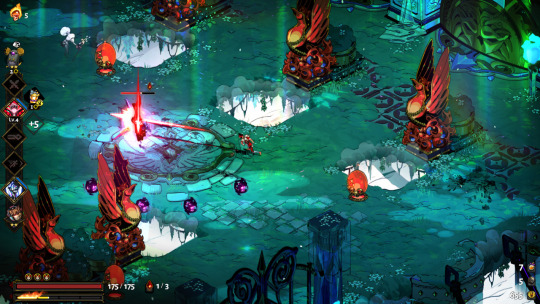
Something that’s become a bit of a staple of Supergiant’s work is customizable difficulty, various modifiers you can flip on to make the game harder if you so desire, which in Hades takes the form of the Pact of Punishment. After a successful run, you can turn on a given pact to spice things up for subsequent runs. Maybe enemies do a bit more damage, or you give yourself a super strict time limit to clear a run. You can give enemies armor that makes them sturdier, or jack up the in-game shop’s prices. You can even be forced to give up Boons in order to advance past certain doors! Probably the most impressive Pact is Extreme Measures, which ends up greatly affecting the boss fights in the game…trust me when I say you won’t be ready for them the first time you flip that on. Activating a given pact increases a “heat gauge” that, should it reach a given level, will end up granting you various special items to help with fully upgrading and unlocking stuff. Of course, with each successful run completed with a given Pact activated, you’ll have to raise the heat more and more in order to keep getting these upgrade materials so be prepared. You can also still gain these materials (albeit at a much slower rate) playing through the game normally though, and there’s really no penalty for choosing NOT to activate a given pact. On the flip side of things, there’s also a God Mode you can toggle on that makes Zagreus a little stronger with each death, which can help those that want to see more of the story but are struggling with the game. Have your God Cake and eat it too!
All and all, this game just delivers on every level and I’ve been devouring it since release whenever I have a spare minute. You can see that Supergiant is taking all the lessons they learned from each previous game and combined it to make what is easily their best game yet. I don’t throw around words like “masterpiece” lightly, but Hades is just such a slam dunk that I’m sorely tempted to call it just that. I mean, if you hate rogue-likes, I’m not sure if Hades will really push you over the edge admittedly? You get way more rewards retained after death than just about any other rogue-like I’ve played, but if you’re the type that hates having to constantly adapt and not being able to memorize what’s coming, I can see this not working for you. But for me at least, I’ve had an absolute blast with the game and the only issue I really have with it is a small nitpick at best. When it comes to getting to know various characters, you can talk to them and give them Nectar or Ambrosia as a gift right? But what happens if they don’t show up on a given run? Or what if they DO show up, but they’re locked into a conversation with someone else? That means you can’t really advance anything with them until a given dice roll pities you. MEGAERA I THINK YOU’RE COOL, PLEASE JUST TALK TO M—oh sorry, don’t know where that came from… So yeah, that’s the nittiest of picks.
I adore this game’s cast, the voice work and music is excellent to the ear, the combat is engaging, the gameplay loop is addicting…need I say more? I mean, I’ve said almost 3000 words, but to really sum it up…I highly recommend Hades and I hope you don’t pass it up if you’re even remotely interested. You can find it on Steam, the Epic store and Switch as of right now, and I don’t think you could go wrong with any version.
Blood and darkness await you.
-B
#Hades#Hades game#supergiant games#hades supergiant#zagreus#megaera#rouge like#nintendo switch#xb-squaredx
7 notes
·
View notes
Text
What Shall we do with a Drunken Sailor?

Being the Watcher of Caed Nua is no easy feat. In fact, when Eothas returns to the world of Eora, he does so by taking control of a huge adra statue resting beneath your keep and ends up taking a part of your soul as he crushes you underfoot. While it may not have been the best of beginnings, such an opening quickly propels the player into the new region known as the Deadfire. After waking up on a shift, you set about following the wayward God as he wreaks havoc over the open seas. As you do so, you are inexorably drawn into the political conflicts of the region. And while the world as we know it teeters on the brink of destruction, self-interest remains paramount as the diverging factions squabble over land and resources.
Diving into Pillars of Eternity II was a welcome return to the isometric gamepaly of computer role playing games. After falling in love with Shadowrun, my natural curiosity had me trying out all manner of titles, particularly those that were nostalgic love letters to Baldur’s Gate and Neverwinter Nights. In many ways they play a little like real time strategy games with the ability to select each individual character, crossed with online multiplayer games and their vast choice of abilities. But to keep a sense of strategy to the whole affair is the pause button. Instead of relying on the basic AI behaviour, you are able to select which skill to use and when. Often, I slowed the speed of combat down when characters where on the verge of death, ordering them to heal up with potions and spells from the devoted cleric Xoti.
Then there’s the ship on ship combat. With a focus on scripted events and text, the player envisages the two ships sailing towards each other - cannonballs tearing into the hull and injuring crew.
Yet as so often happen in these games, I find myself more enthralled with the world and the characters that populate it. Though the ‘How Long to Beat’ website indicated it should have taken only fifty or so hours to enjoy the main story and extras, I found myself invested in listening to the voiced dialogue - taking particular glee that the cast of Critical Role could be found in many of the different companions: Marisha Ray as Maia, Matthew Mercer as both Eder and Aloth, Liam O’Brien as Serafen, Travis Willingham as the ‘handsome fish’ Tekehu and Laura Bailey as the aforementioned cleric. Better yet was hearing Ashley Johnson just as the game began serving as narrator and Taliesin Jaffe as Eothas himself.
But back to the game.
For almost seventy hours, I voyaged across the Deadfire, trying to sow peace between the factions and ensuring that the little people were protected. As the Watcher of Caed Nua, I cleaned up what I could and endeavoured to explore every nook and cranny of the archipelago. With the Defiant and a good crew serving under me, I sailed all through the Deadfire, picking up bounties and charted islands that had been lost to time, naming a few with colourful euphemisms.
Despite the best of intentions, though, the Watcher could not save everyone. Choices made earlier in the game meant that the Gullet (the slums of the great city known as Neketaka) became a hotbed of piracy. And unfortunately Pallegina, a Godlike companion from the previous game, was shafted at every turn by the decisions I made in my attempt to better the world. though it was not my intention. And this is where some of the dialogue options prove to be quite limiting.
In the real world, words can be used to manipulate and deceive. However, after landing on Crookspur, it was hard to let my intentions known to my AI companions due to the script. Worse still is when you are forced to assist another side when you were merely trying to bring two opposing factions together. I had to reload a save near the end of the game as Furrante considered me a traitor though I had no intention of siding with Aeldys.
Gripes aside, Pillars of Eternity II, was a welcome window into the world of Eora, allowing the player to explore more of the lore and the difficulties that comes from navigating conflicting political views. While it pained me that there was no ending where I could ally all the factions together (instead, pairing up with the Huana), I found the small intricate side stories just as fascinating, if not more, than the main plot. And like its predecessor, the ending gives much food to thought, empowering humankind as masters of their own destiny despite our faults and our tendency to think first of ourselves instead of others.
2 notes
·
View notes
Text
Some wold writing.
Many years ago, I knew a guy who tried to launch a Video Game review blog/site called “Trendy Gamers”. It didn’t really take off. AS I was fairly prolific on my old wordpress blog at the time, he asked if I would write a review for him. I said sure, and penned a masterpiece for a game that was decidedly not.
While tooling around my old wordpress dashboard today I rediscovered it. Looks like it was never even posted, as it still sits in the “pending review” status. I guess it wasn’t his style. No hard feelings though, we aren’t even in touch anymore, he was just some kid who worked in my department at futureshop back in the day :p
Anyway, here it is, preserved for posterity.

Vanguard Bandits. I couldn't tell you what that title means.
My editor burst into my luxuriously appointed office with a kind of wild gleam in his eye which could only be explained by either a full psychotic meltdown, or perhaps the release of a new Zelda game.
“Geoff! I need you to review Vanguard Bandits!” he said, his breath ragged as his eyes continued to dart about with unsettling speed. “No Star Wars references, no Doctor Who quotes... Go light on the Battlestar Galactica similes.” I regarded him warily “No Star Wars references? Nobody is going to want to read that.”
Alas, my editor was immovable on that point, so please forgive me for what will be an exceedingly boring and Star Wars-less review of Vanguard Bandits, a tactical RPG first released back in the distant future of the year 2000 for the PS1, or as us old timers call it: “The Playstation”. It is now available on the PSN for download to a no doubt eager public. I was rather looking forward to it, being an old school fan of such tactical games as X-Com, Starcraft and Warcraft. Unfortunately Vanguard Bandits just doesn't capture the same magic that those games held for me.
I could attempt to be kind to this game, but that would be disingenuous of me. That's a big word that I know, did you like it? If I'm being honest with you dear reader, this game sucks. The battle system is repetitive and boring, the graphics are dull and uninteresting, the characters are typical and bland, the music is a never-changing loop, and worst of all the story is unengaging and poorly written. Shall we dive in? Let's.
Vanguard Bandits is your standard, run-of-the-mill JRPG storyline couched in a tactical RPG format. You lead a band of freedom fighters against a tyrannical empire that killed your father! And being a JRPG there are, of course, mecha involved. The game calls them ATACs, get it? it sounds like attack! Clever girl.
There are 3 views you will spend the game in: The first is an isometric grid on which the player and NPC ATACs move through their environment. The second is a similar isometric view, this time without the grid, on which cartoon representations of the characters interact and converse with each other. These screens are non-interactive, think of them is non animated cut scenes. Finally there is the battle screen in which 2 polygon rendered ATACs fight it out in the manner you've dictated. This view is also non-interactive.
Unfortunately for the player, the majority of the game is spent watching instead of playing, and when you are playing, it's tedious beyond measure. Individual fights drag on endlessly and generally speaking the number of combatants involved means that you can expect each encounter to last upwards of 20 minutes or more. No doubt it's this combat system which allows the game developers to claim their game offers X hours of game play.
Now I'm well aware that there are those among you that won't share my distaste for the combat system in this game. That's fair. You're wrong of course, but I won't tell you not to enjoy it if that's your bag. For those that do enjoy this kind of system, allow me to offer you some tips on how to best survive your encounters and the game in general. Most of this is standard, but it never hurts to refresh the basics:
Firstly, you gain no xp when NPCs in your party make a kill, so don't let them.
Secondly, upgrade everyone's skills as evenly as you can. It's not going to do you any good if your main character is maxed out and the rest of your party are weaklings.
Thirdly, not everyone in your party will be with you till the end, so I recommend looking up online who doesn't stay the course with you and not allowing them any kills, save that xp for those who will be sticking around.
Finally, the position your ATAC takes in relation to your opponent is important. Attacks from the side or behind will be more successful and your opponent will have a harder time countering, defending or dodging.
There you go, that's all the knowledge you really need.
Full disclosure, I did not beat this game. Not for lack of skill, but rather out of lack of patience. I spent several days playing this game, but the never-ending musical loop, and the tedium of the battle system were the opponents I couldn't overcome.
Beaten by boredom, that's a terrible thing to have happen in a game. 4 out of 10
The Good: The storyline is so bad it's funny
The Bad: The actual game play is exceedingly tedious and repetitious.
0 notes